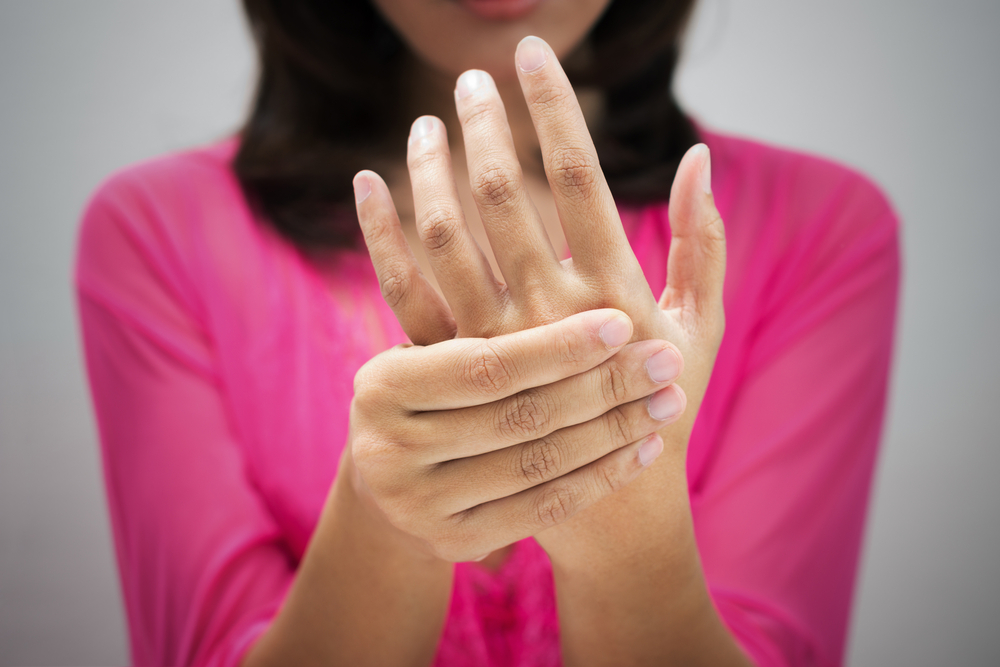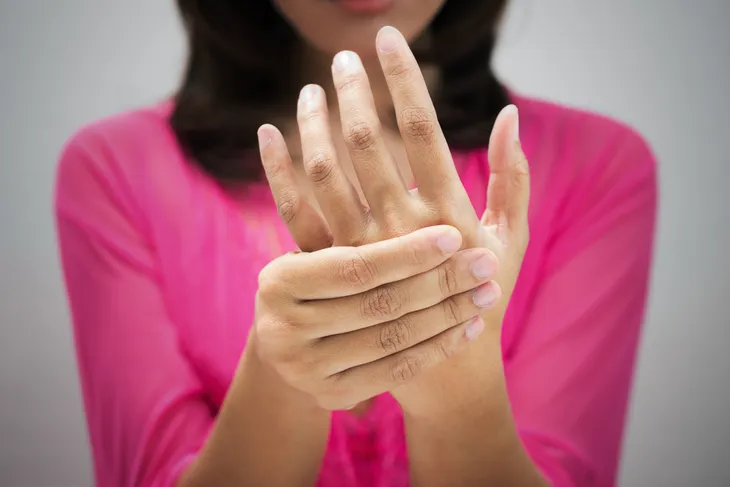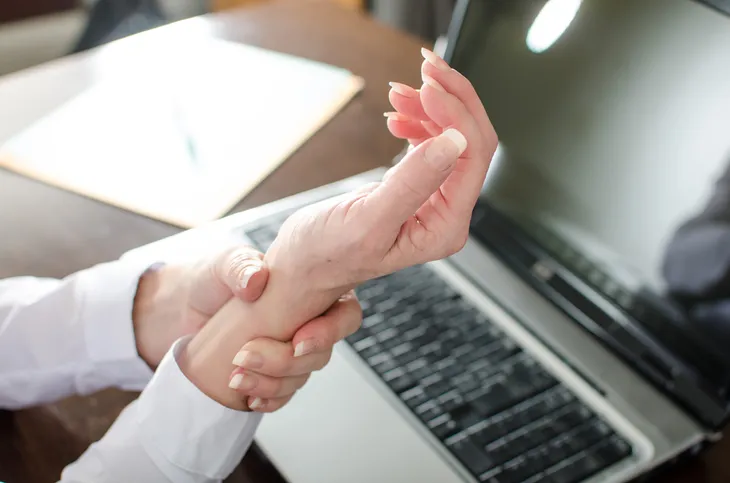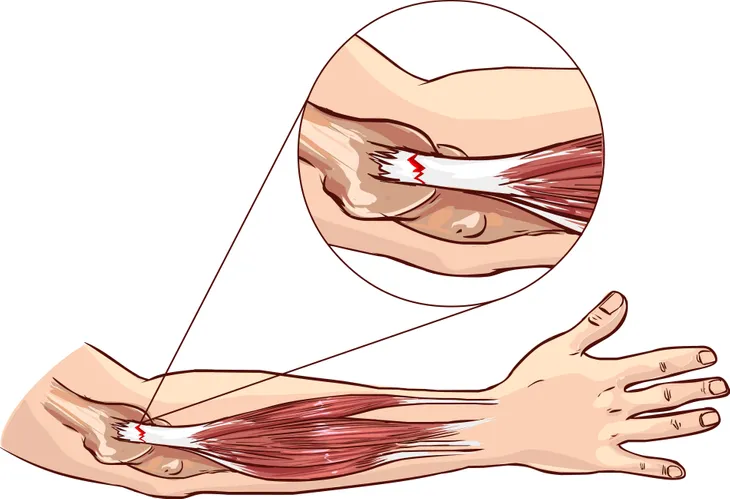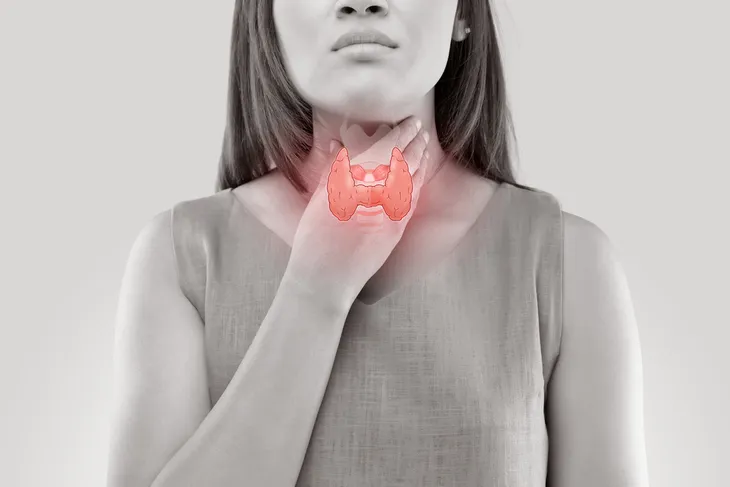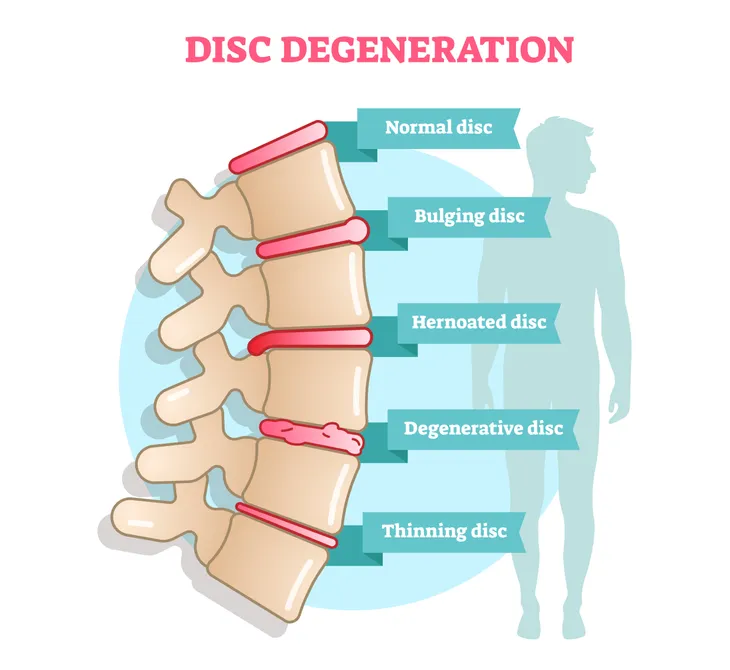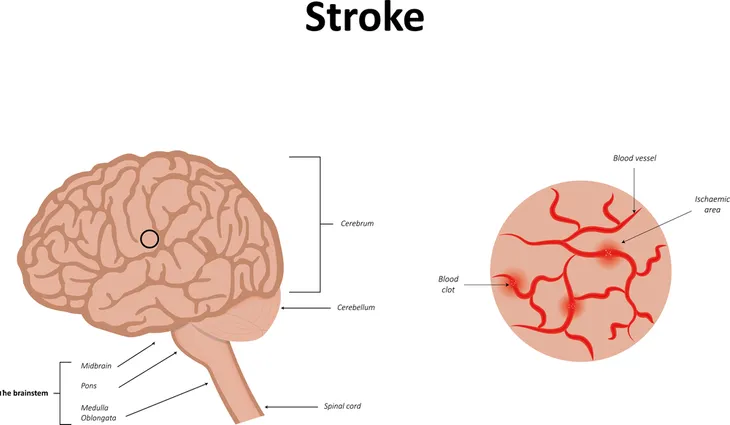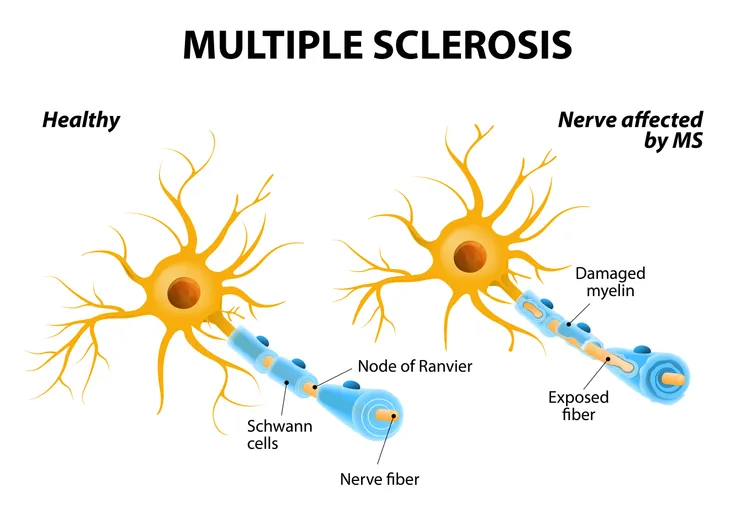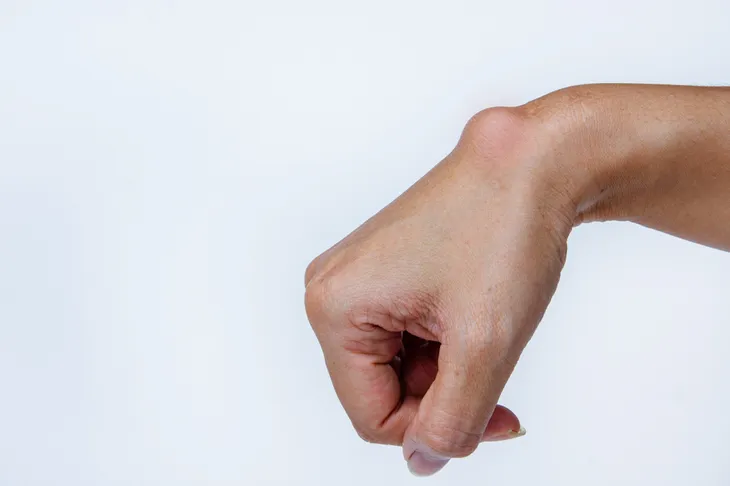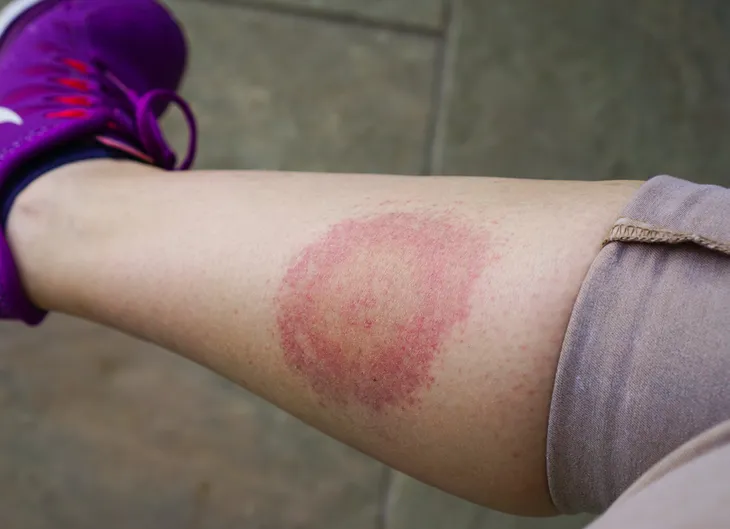The human body is complex and when something is wrong with our health, there are a number of different symptoms or warning signs that can arise. One of the most common is tingling or numbness in the hands, feet, or both. While it’s no doubt an alarming symptom, WebMD assures that it can sometimes be benign or temporary.
On the other hand, there are times when tingling or numbness in the hands or feet is severe, chronic, or episodic. Any kind of numbness is typically a sign of either an irritation or damage to one or more nerves. Most of the time, these nerves are the peripheral nerves which are “nerves that connect the brain and spinal cord to the rest of the body,” says VeryWell Health. There are a number of different conditions that can result in damage to the peripheral nerves. We advise seeking a medical evaluation for any persistent tingling or numbness in the hands. But until then, here’s a look at a number of possible reasons for numbness and/or tingling in the hands…
Diabetes
Many people have type 2 diabetes and don’t even realize it, says Prevention after talking with Rob Danoff, DO, director of family medicine at Philadelphia’s Aria Health System. This is because the symptoms are sometimes subtle. If something like diabetes goes untreated, hand numbness can develop as a diabetes-related nerve damage. In fact, diabetes is one of the most common causes of peripheral neuropathy (damage to the nerves outside the brain and spinal cord). WebMD states that diabetes is responsible for 30-percent of all peripheral neuropathy cases. In many cases, tingling in the hands is one of the first signs of diabetes.
People who suffer from diabetic neuropathy will experience tingling that begins in either one or both feet that travels up the legs, and then into the hands and arms. The source also notes that about two thirds of people who suffer from diabetes also have mild to severe forms of nerve damage.
Vitamin or Mineral Deficiency
There are a number of vitamins and minerals responsible for maintaining healthy nerve function. Both deficiencies and overconsumption of the vitamins E, B1, B6, B12, or niacin, can lead to tingling in the hands. Deficiencies in potassium or magnesium can also lead to numbness, says Healthline.
A vitamin B12 deficiency is the perfect example of this. According to WebMD, it “can lead to pernicious anemia, an important cause of peripheral neuropathy. But too much B6 also can cause tingling in the hands and feet.” Other symptoms of a vitamin B12 deficiency are weakness, fatigue, jaundice of the skin and eyes, difficulty thinking, trouble walking and balancing, and hallucinations, says Healthline.
Raynaud’s Disease
Raynaud’s disease is sometimes referred to as Raynaud’s phenomenon. Healthline explains that Raynaud’s disease is when the blood vessels narrow, preventing blood from reaching the hands and feet. The lack of blood flow into the hands and feet causes a number of symptoms including numbness, feeling cold, extreme paleness, and pain. The symptoms become magnified when you’re cold or stressed.
“Raynaud’s disease can be excruciating, and some people also notice their fingers swelling and turning white or blue during an episode,” writes Prevention. While experts aren’t sure why this condition occurs, they do know that women are at a higher risk. The symptoms can be triggered by cold temperatures, stress, injuries to the hands, tissue damage, and certain drugs, such as high blood pressure or migraine meds, adds the source.
Carpal Tunnel Syndrome
Before we can get into what carpal tunnel syndrome is, let’s first go over what is the carpal tunnel. Healthline describes the carpal tunnel as “a narrow passageway that runs through the center of your wrist.” In the center of this passageway is the median nerve. This nerve is responsible for providing feeling to your fingers, including the thumb, index, middle, and part of the ring finger.
Similar to tennis elbow (which we will get to next), carpal tunnel syndrome often occurs as a result of repetitive activities like typing or working on an assembly line. Dr. Danoff told Prevention that it’s one of the most common causes of numbness in the hands. “It’s fairly common for people who spend a lot of time working on a computer,” he says. People who lay their hand down on a hard surface or against an edge while they type or use a mouse are at a higher risk. The repetitive motion of this type of work causes the tissues around the median nerve to swell and put pressure on that nerve. “The pressure can cause numbness along with tingling, pain, and weakness in the affected hand,” says Healthline.
If carpal tunnel syndrome goes untreated it may require surgery to relieve the pinched nerve. Prevention also notes that if carpal tunnel syndrome occurs in both hands, it can be a sign of another disease like rheumatoid arthritis, an autoimmune disease that attacks the joints.
Tennis Elbow or Epicondylitis
Lateral epicondylitis, better known as “tennis elbow” is caused by repetitive motion, like swinging a tennis racket. It occurs due to a wearing down or weakening of the tendons that wrap across the elbow, says the American Society for Surgery of the Hand (ASSH). Don’t be fooled by the name, this condition can affect anyone who partakes in an activity with repetitive twisting. “The repeated motion damages muscles and tendons in the forearm, causing pain and burning on the outside of your elbow,” writes Healthline.
According to Prevention, some of the early signs of tennis elbow are tingling and numbness in the hands. Of course, other telltale symptoms are pain in the elbow and forearm. If any of these symptoms arise, take a break from whatever the sport or activity is. If it returns, talk to a doctor.
Another possible cause of numbness or tingling in the hands is medial epicondylitis which is similar to tennis elbow but has been nicknamed “golfer’s elbow.” This condition causes pain in the elbow, as well as weakness, numbness, and tingling in the pinky and ring fingers. There may be numbness in the hand if the swelling becomes so bad that it causes dysfunction in the ulnar nerve. It’s important to note that this is extremely rare, says Healthline.
Thyroid Disorders
The butterfly-shaped gland in our neck is known as our thyroid. This gland produces hormones that regulate the body’s metabolism. When these hormones are out of whack it can have a major impact on many other bodily functions. “It may not be the first thing that comes to mind, but a thyroid disorder could lead to hand numbness,” says Dr. Danoff to Prevention.
In the case of an underactive thyroid or hypothyroidism, the thyroid isn’t producing enough of its hormones, says Healthline. If hypothyroidism is left untreated, it can cause damage to the nerves responsible for feeling in our arms and legs. “This is called peripheral neuropathy,” adds the source. “It can cause numbness, weakness, and tingling in your hands and feet.” If you’re also experiencing symptoms like hair loss, weight gain, or constantly feeling cold all the time, Prevention advises you to talk to your doctor about hypothyroidism.
Some Medications
Even though medications are designed to help us, they can sometimes have harmful or uncomfortable side effects. Healthline explains that nerve damage, also known as neuropathy, is sometimes a side effect of drugs, particularly those that treat cancer, HIV/AIDS, and seizures. This nerve damage can affect both the hands and feet and come with additional symptoms like tingling, abnormal feelings in the hands, and weakness.
According to Healthline, the common culprits for numbness are antibiotics such as metronidazole (Flagyl), nitrofurantoin (Macrobid), and fluoroquinolones (Cipro). Anticancer drugs such as cisplatin and vincristine, as well as antiseizure drugs like phenytoin (Dilantin), and heart or blood pressure drugs such as amiodarone (Nexterone) and hydralazine (Apresoline). Numbness and tingling in the body can also be caused by anti-alcohol drugs, heart or blood pressure medications, and skin condition treatments, adds Prevention.
If you think one of your medications is the reason behind these symptoms, talk to your doctor. A doctor can either lower your dosage or find a similar treatment that doesn’t cause these effects. Don’t ever stop taking a medication on your own without consulting your doctor first.
Slipped Cervical Disc
A slipped cervical disc just sounds painful! Discs are the soft cushions that separate each of the bones (vertebrae) in your spine. “A tear in a disc lets the soft material in the middle squeeze out,” explains Healthline. “This rupture is called a herniated, or slipped, disc.”
A damaged disc in the spine can cause pressure on or irritation to the nerves in the spine. In addition to numbness, other symptoms include weakness or pain in the arms or legs.
Cervical Spondylosis
Cervical spondylosis is a type of arthritis that affects the discs in your neck and is often caused by repetitive damage. According to Healthline, “it’s caused by years of wear and tear on the spinal bones.” The damaged vertebrae affects other nerves by pressing on those around it which causes numbness and tingling in the hands, arms, and feet.
Oftentimes people with cervical spondylosis don’t have any symptoms. But some people with this condition will have some stiffness in their neck. Other symptoms include: “weakness in the arms, hands, legs, or feet, headaches, a popping noise when you move your neck, loss of balance and coordination, muscle spasms in the neck or shoulders,” as well as a loss of control over bowel movements, including the bladder.
Cubital Tunnel
You know that awful feeling after hitting what we refer to as our “funny bone?” That is the same nerve area as the ulnar nerve, a “nerve that runs from the neck to the hand on the pinky side,” writes Healthline. This nerve can become “compressed or overstretched in the inner aspect of the elbow.” When this happens, it’s referred to as cubital tunnel syndrome.
Someone who suffers from cubital tunnel syndrome will experience symptoms like hand numbness and tingling, especially in their ring and pinky fingers. The source adds that they may also experience pain in their forearm, as well as weakness in the hand. This pain will worsen when they bend their elbow.
Stroke
While it’s highly unlikely, numbness in the hands can be a sign of a stroke, says Healthline. A stroke occurs when blood flow is blocked to one area of the brain. If this is the case, it’s a serious situation. Strokes can be life-threatening because brain cells begin to die when there’s a lack of oxygen, explains Prevention. Strokes are the fifth leading cause of death in the U.S.
Healthline notes there are many other signs to look for that will indicate whether the problem is due to a stroke or not. Numbness in hands isn’t a sign on its own. You should seek immediate medical attention if you or someone else experiences “sudden weakness or numbness in your arm or leg, especially if it’s only on one side of your body, trouble speaking or understanding others, confusion, drooping of your face, sudden trouble seeing out of one or both eyes, sudden dizziness or loss of balance,” as well as a sudden severe headache.
Multiple Sclerosis
Multiple sclerosis (MS) is a disease that affects the central nervous system which includes the brain, spinal cord and optic nerves. It causes the immune system to attack itself which damages myelin, a fatty substance that protects the nerve fibers of your brain and spinal cord. This can result in hand numbness and tingling, writes Prevention after talking with Dr. Danoff.
This disease can affect anyone of any age, but the National Multiple Sclerosis Society points out that women are three times more likely to develop MS than men and it’s more likely to appear between the ages of 20 and 50. “While symptoms are all over the map, limb and muscle weakness, double vision, poor coordination, and pain are some of the red flags that could coincide with a sufferer’s hand numbness,” adds Prevention.
Ganglion Cysts
Ganglion cysts are non-cancerous fluid-filled growths that can appear anywhere on the body, but often show up on tendons or joints, most common in the wrists or hands. These growths can get as big as an inch or more across and according to the American Academy of Orthopaedic Surgeons (AAOS), they are the most common mass or lumps to show up on the hands.
Sometimes these cysts go away on their own, says Prevention, but if they are causing discomfort, they should be removed via surgery or “aspiration” which is a procedure that involves draining in the cysts. Either way, Healthline warns that if left untreated, these cysts can press on a nearby nerve and cause numbness, pain, or weakness in the hand, says Healthline.
Alcohol Disorders
Most people indulge in alcohol here and there, or even on a weekly basis. That’s fine, as long as it’s enjoyed in moderation. Overconsumption of alcohol which often results in alcoholism can have some dangerous effects. There are many side effects and symptoms of alcohol disorders, a major one affects the nerves, resulting in a tingling sensation in the hands and feet. “Other alcohol-related neuropathy include: a pins-and-needles feeling, muscle weakness, muscle cramps or spasms, trouble controlling urination,” and erectile dysfunction, says Healthline.
In addition to nerve damage, people who suffer from alcoholism are more likely to have a thiamine or vitamin deficiency. This is because alcoholics tend to suffer from poor dietary habits which is also a common cause of peripheral neuropathy. “It is possible that alcoholism itself can cause nerve damage, a condition that some researchers call alcoholic neuropathy,” writes WebMD.
Lyme Disease
The threat of lyme disease is something that comes around every year as the temperatures warm up across the United States. Lyme disease is a condition that is transmitted to humans through the bite of an infected tick. According to the Centers for Disease Control and Prevention (CDC), Lyme disease is more common than ever. The amount of cases in the United States has more than tripled since the late 1990s.
“People who contract the bacteria that cause Lyme disease first develop a rash shaped like a bull’s-eye and flu-like symptoms, such as fever and chills,” says Healthline. If left untreated, other symptoms can arise, including joint pain and numbness in the arms or legs. Practice caution after going in common tick habitats such as forests, bushy areas, or high grasses. To learn more, check out this article on important Facts and Symptoms of Lyme Disease.
